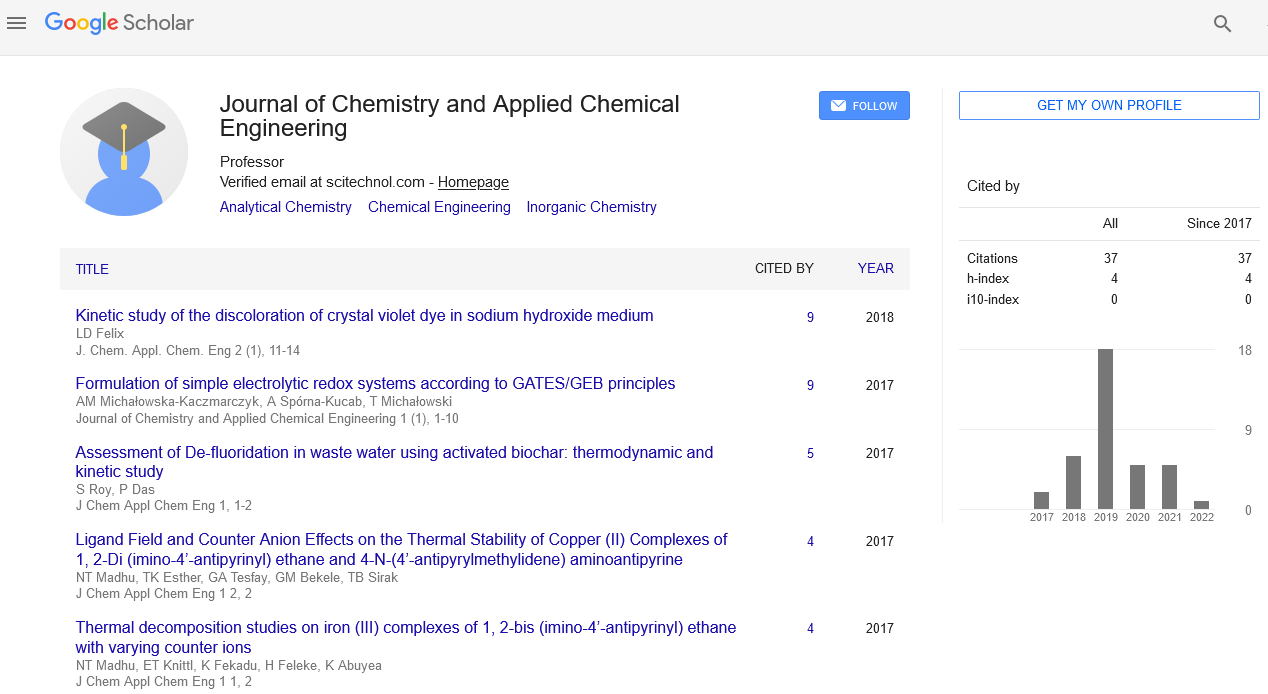Recent developments in enhanced oil recovery
DN Rao and BD Saikia
Louisiana State University, USA
: J Chem Appl Chem Eng
Abstract
The current commercial practice of gas-based enhanced oil recovery processes involves either continuous gas injection (CGI) or Water-Alternating-Gas (WAG) injection. Over 60 commercial field projects have amply demonstrated that these CGI and WAG processes have been technically successful and commercially profitable. However, the oil recoveries from the CGI and WAG processes fall in the range of 5-15% of the remaining oil. The Gas-Assisted Gravity Drainage (GAGD) process, invented and patented at LSU, has yielded oil recoveries in the range of 65 – 95% in laboratory experiments conducted at realistic reservoir conditions. Field scale simulations also support the laboratory findings and efforts are underway to test the process in an actual Louisiana oilfield. The GAGD process (Figure1) involves utilizing several vertical wells for injection of CO2 in addition to drilling long horizontal wells for production. Injected CO2 accumulates at the top of the payzone due to gravity segregation and displaces oil, which drains to the horizontal producer. This maximizes the volumetric sweep efficiency. The gravity segregation of CO2 also helps in delaying, or even eliminating, CO2 breakthrough to the producer as well as preventing the gas phase from competing for flow with oil. This predictability of the frontal position of injected CO2 is unlike that in a WAG process, wherein there is little control over the breakthrough of the injected CO2 gas at the producer, thereby complicating any CO2 sequestration effort. Thus GAGD enables sequestering injected CO2 in addition to yielding much higher recoveries of trapped oil from depleted reservoirs.
Biography
Dandina N Rao is the Emmett Wells Distinguished Professor in Petroleum Engineering dept. at LSU; is a registered PE and has been involved in EOR research for nearly 3 decades. He has served as a member of the Editorial Review Board of the Journal of Canadian Petroleum Technology for more than 7 years and as technical editor of SPE journal for 5 years.
E-mail: dnrao@lsu.edu
 Spanish
Spanish  Chinese
Chinese  Russian
Russian  German
German  French
French  Japanese
Japanese  Portuguese
Portuguese  Hindi
Hindi 